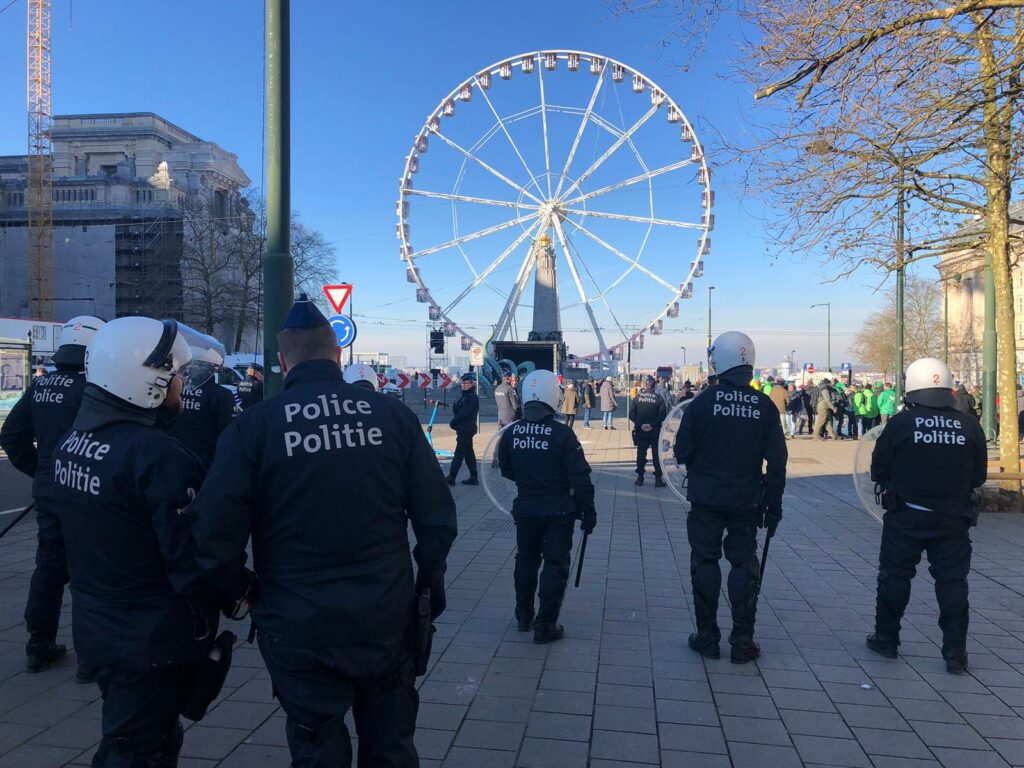The fragmentation of Brussels is the butt of many jokes, but the city's complex make-up is less funny if you have security concerns or a crime to report.
In the mid-1990s, Belgium was hit by shock and scandal to a degree unmatched by other contemporary events. In 1995 and 1996, Marc Dutroux abducted and raped six young girls. He buried two of his victims alive, and two more died of starvation. He was sentenced to life imprisonment in 2004.
The enormous shortcomings of the official investigation into the case prompted widespread outrage. For instance, police did not search Dutroux's house for five months after the first abduction even though he was a registered sex offender on parole and a prime suspect. When they did, they decided not to look further when they heard young girls crying, assuming the noise was coming from outside.
In 1996, Belgium's largest ever protests saw between 275,000 and 350,000 people take to the streets in solidarity with the victims, calling for police reforms.
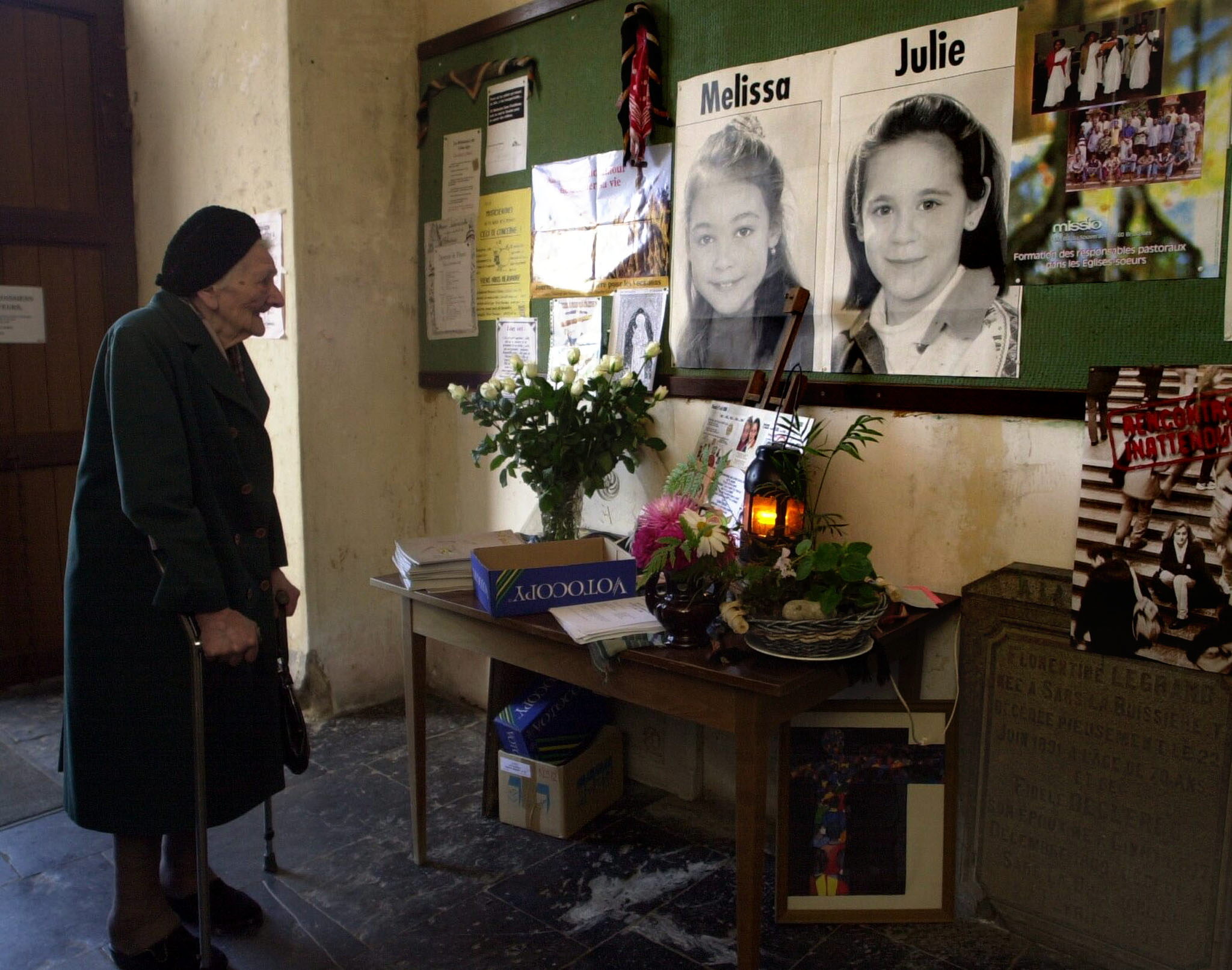
A woman looks at posters of Julie and Melissa, two of Marc Dutroux's victims, in 2001. Credit: Belga / Olivier Mathys
The 1998 Octopus Reform sought to address the structural issues underpinning the Dutroux case. The police were separated into federal and local forces. The latter has been divided into 196 inter-police zones (ZIPs) since 2001, six of which are spread across Brussels' 19 municipalities.
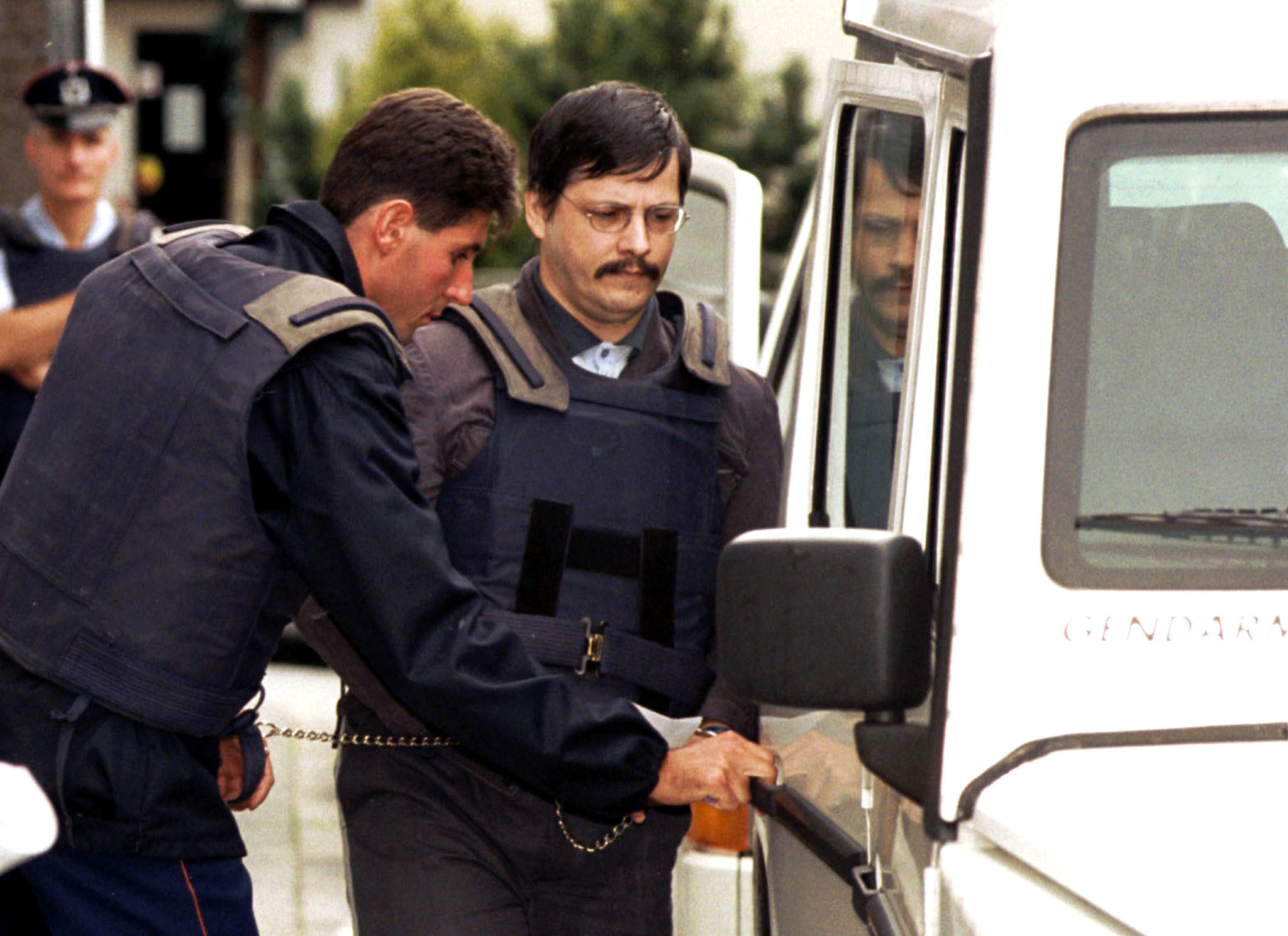
Marc Dutroux in 2000. Credit: Belga / David Martin
Fast forward to 2025, and a police zone merger in Brussels is touted as a solution to the city's current security woes: rampant drug violence and officials' seeming inability to stop drug gangs from shooting at each other, escaping prosecution and sowing widespread insecurity.
Advocates of a merger say one centralised police force would put an end to fragmentation and ensure better security cooperation across the board. Meanwhile, all 19 Brussels mayors are opposed to a merger, arguing it is a "false solution" to structural crises including chronic underfunding of local and federal police.
Interior Minister Bernard Quintin (MR) says a merger is inevitable during the current mandate, stating that it will take around two years to become reality. In any case, the role of local police is unlikely to change dramatically. Here is a breakdown of what your local police force is responsible for and what the power structure looks like.
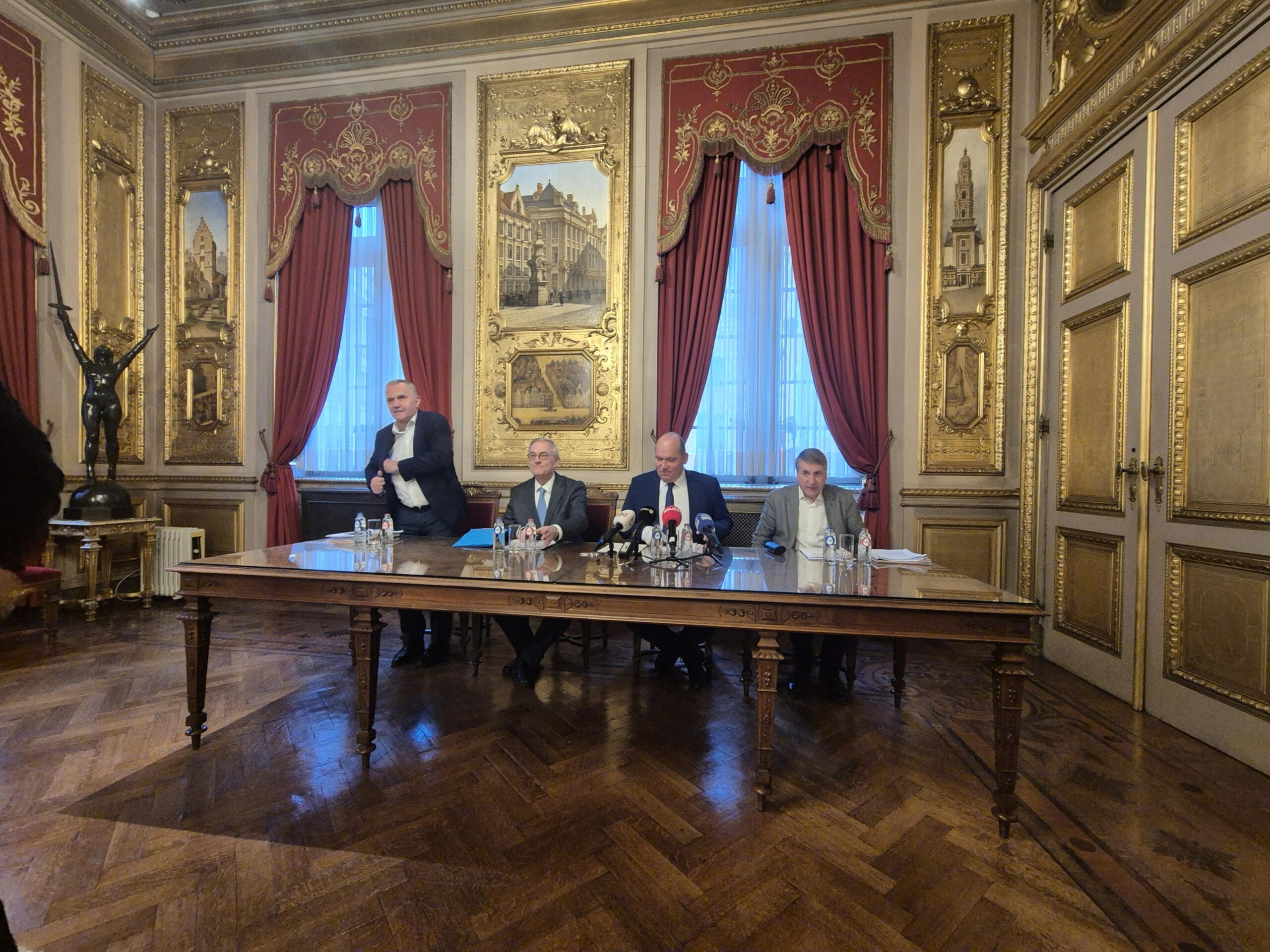
Press conference against police mergers. L-R: Woluwe-Saint-Pierre mayor Benoit Cerexhe, Etterbeek mayor Vincent De Wolf, City of Brussels mayor Philippe Close and Woluwe-Saint-Lambert mayor Olivier Maingain on 22 January 2025. Credit: Belga
What do local police do?
The six zones are divided as follows:
- Brussels-Capital/Ixelles;
- Brussels-West (Molenbeek-Saint-Jean, Koekelberg, Jette, Ganshoren and Berchem-Sainte-Agathe);
- Midi (Anderlecht, Saint-Gilles and Forest);
- Uccle/Watermael-Boitsfort/Auderghem;
- Montgomery (Etterbeek, Woluwe-Saint-Pierre and Woluwe-Saint-Lambert);
- Brussels-North (Schaerbeek/Saint-Josse-ten-Noode/Evere).
Local police forces have five main responsibilities: preventive policing, road traffic, recording offences committed, interviewing suspects and witnesses and drawing up reports.
'Neighbourhood officers' play a specific community role and any registered Brussels resident will have come into contact with them when they first registered with their commune. This officer is every resident's local contact and is available to answer any questions you might have. Visit your police zone's website (listed above) and enter the name of your street to identify your neighbourhood officer.
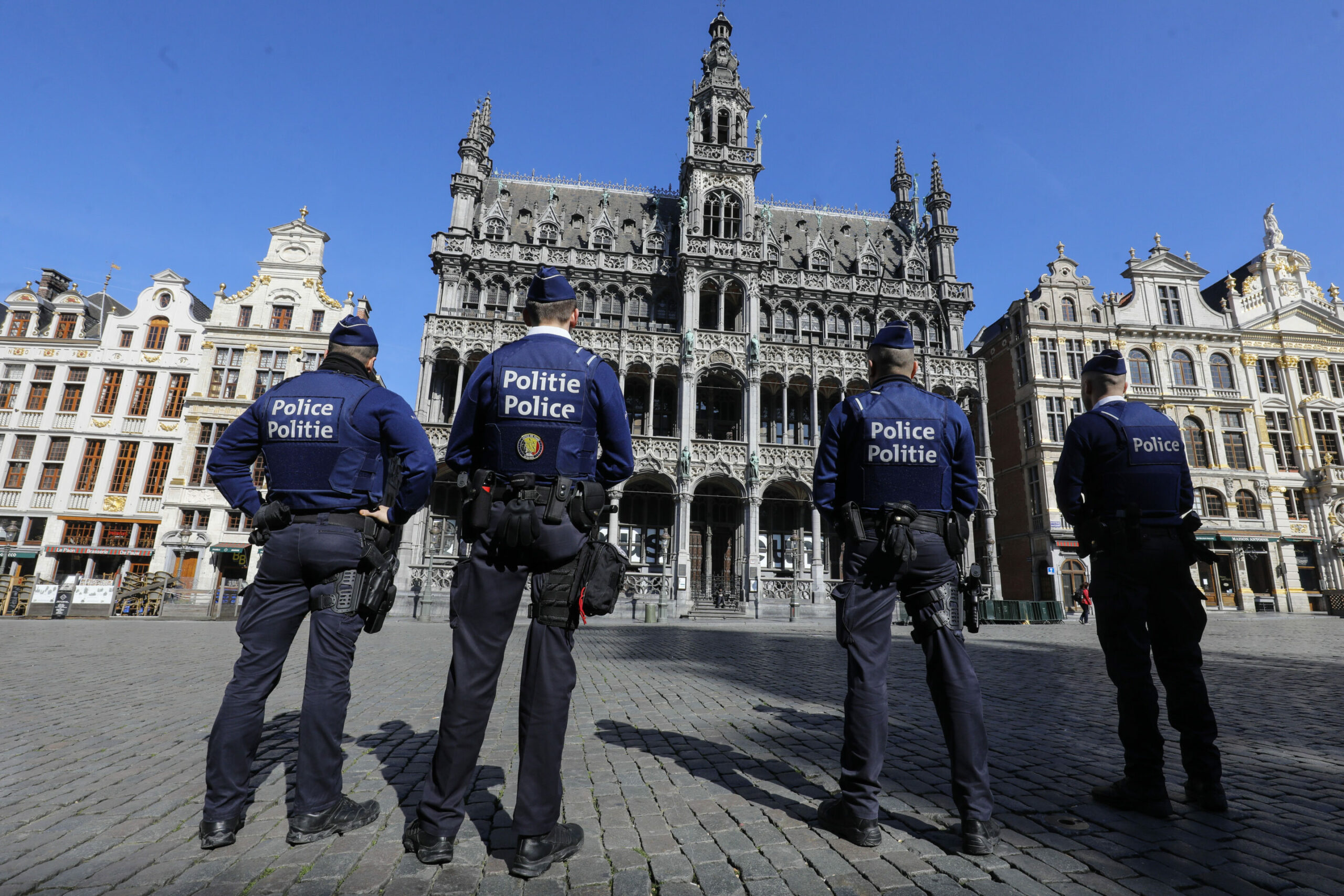
Police officers on Grand Place in Brussels, Wednesday 18 March 2020. Credit: Belga / Thierry Roge
Who is in charge?
Each zone has a commander who oversees the zone's management and security plans. The commander allocates tasks and is responsible for the execution and management of local missions and federal instructions.
The commander reports to the bodies that govern the overall structure: the police college and the police council.
The college is made up of Brussels' 19 mayors. It is chaired by one appointed mayor and deals with day-to-day zonal management.
The council is made up of municipal councillors and acts as a consultative body between different levels of power. Meeting four times a year, it has a range of responsibilities. These include budgeting, employment contracts, legal action, building rights and the appointment of chief of staff.
An additional 'zonal security council' acts as a meeting point between mayors, the Public Prosecutor, the zone commander and the federal police. This body defines each zone's priorities.

